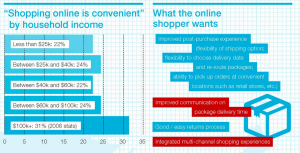As we wrap up our series of PPC sins, we arrive at ENVY. Now don’t get me wrong – a little bit of envy can be good. You should always be pushing your account to get better and try to enjoy the same successes as others have using PPC.

The problem is when your envy of others leads you to make bad decisions. Pushing your campaigns outside where your numbers make financial sense will completely defeat the purpose of your PPC account. In this case, envy is entering into competition with other companies unnecessarily.
The most common ways that envy shows in PPC are:
- Bidding on competitors’ brand names
- Trying to bid up so your ads always appear in the first position
I’ve actually discussed the rules of bidding on competitors’ brand names before. The goal should not be to have your ad show whenever someone searches for any other brand in the world that sells similar products to yours. That will lead to a drain on your bank account with very little return.
The same goes for targeting first position. Many advertisers believe that they need to show up in first position for every search result and will mortgage any success in their accounts to do so. Here are a few rules to consider when trying to grow your account without succumbing to the sin of envy.
#1: Know Your Limits (CPA target range)
I know that you want to grow your account and push it as far as it can go. That’s a good goal. But it might not be feasible with your Target CPA or your budget. Bidding up to positions that work well for people with different targets or budgets is not an effective business model. Come up with a CPA target and a budget that you can handle and stick to it.
So how do you determine your target CPA? You should take a few things into consideration, including:
- How much the product costs
- Extra costs such as marketing
- How much profit you’re hoping to get
If you set your target CPA at a point where you’re not making money on each sale, then that defeats the purpose of advertising in the first place. Set a target CPA a certain percentage below what the product actually costs, then adjust as necessary to optimize costs. It really depends on the goal of your marketing. If you are simply trying to gain new customers, consider the lifetime value of a new customer when setting a target CPA.
#2: Be Smart About the Competition
I’ve said it before and I’ll say it again: Don’t bid on competitors unnecessarily or recklessly. With the can of worms you’d be opening, you’d better be sure you can hold your own. The best way to bid on competitors’ brand names is to single out your actual competitors and not just the big brand names in your industry. Yeah, their name recognition is great, but if yours isn’t, you’re gonna have a hard time taking a customer away from them.
If you really want to bid against your competitors, the best way is to look up what terms they are bidding on or see what messaging they are using in their ad copy, using tools like SEM Rush and SpyFu.

#3: Protect Your Own Brand
Our clients often object when we suggest that they bid on their own branded keywords. They will say that they feel it is a waste of money when they can get the traffic for free with their organic listings.
The truth is, regardless of your status with organic listings in the search results, everyone should be bidding on their own brand. These are going to be very cheap conversions with limited spend. These keywords get super high CTR, which improves your account Quality Score. On top of all that, you are protecting your business from the competitors who are trying to poach that ad space. Before you even consider bidding on competitors, you need to make sure you are protecting what is rightfully yours and claim your brand by bidding on it. Own the SERP for your brand terms!

Follow these rules and your account will be rocking out in no time.

(179)









